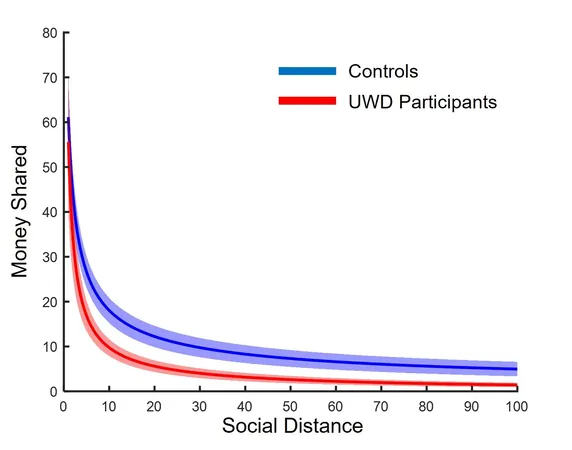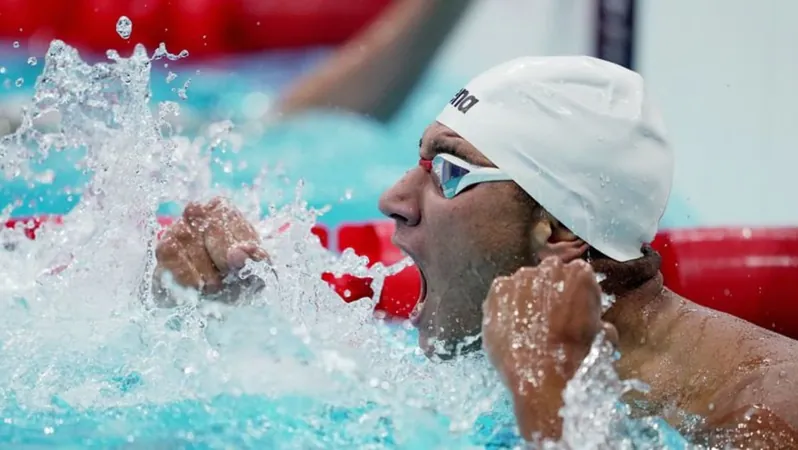
Unlocking Generosity: How the Amygdala Influences Our Connections
2025-04-14
Author: Yu
Can Brain Regions Influence Generosity?
What drives our instinct to help others? Researchers from Heinrich Heine University Düsseldorf, in collaboration with teams from Lausanne, Utrecht, and Cape Town, have made a groundbreaking discovery about the amygdala—a crucial part of our brain's limbic system—that sheds light on altruistic behavior.
Published in the prestigious Proceedings of the National Academy of Sciences, this study reveals that the basolateral amygdala (BLA) significantly influences social behavior.
The Puzzle of Prosocial Behavior
Prosocial behavior—our inclination to assist and cooperate with others—is fundamental to human interaction. However, the specific brain mechanisms behind this behavior, particularly how it varies with emotional connections, have remained largely a mystery.
A Unique Study Environment
The research took a unique turn in South Africa, where Professor Dr. Tobias Kalenscher led a team working with patients suffering from the rare Urbach-Wiethe Disease. This condition specifically damages the BLA while leaving other brain regions intact. The implications? These patients often struggle to interpret facial expressions and experience profound differences in emotional and social interactions. With fewer than 150 documented cases globally, a notable group resides in Namaqualand, providing a rare opportunity for study.
"These individuals create a quasi-natural laboratory for examining prosocial behavior," notes Professor Kalenscher, emphasizing the significance of their condition.
The 'Dictator Game': An Insightful Experiment
To explore this, the researchers conducted "dictator games," where participants were given sums of money to share with others—friends, acquaintances, or strangers—allowing them to reflect their generosity.
Luca M. Lüpkens, a co-author of the study, elaborates, "The findings were striking: participants with BLA damage were just as generous towards close friends as healthy individuals. However, when faced with strangers or distant acquaintances, their generosity dropped significantly, revealing a more selfish tendency."
The Role of the Amygdala in Altruism
The study concludes that while the BLA isn't a prerequisite for altruism, it regulates our generosity based on emotional ties. In the absence of this regulatory mechanism, personal well-being often takes precedence, leading to self-centered behavior—unless there's a strong emotional bond, like that found between best friends.
Lüpkens states, "Our research indicates that the amygdala fine-tunes when and how generously we act, rather than simply promoting or inhibiting prosocial behavior."
Implications Beyond Generosity
These findings grant valuable insights into the biological foundations of social behavior and may shed light on conditions such as autism and psychopathy, where social decisions differ significantly from the norm.
A Broader Perspective on Social Behavior
Professor Kalenscher contextualizes the significance of these results by asserting, "Our social decisions are shaped not only by upbringing or culture but are fundamentally rooted in brain mechanisms. In the future, this could lead to targeted therapies that help individuals with social behavior challenges navigate their choices more effectively."



 Brasil (PT)
Brasil (PT)
 Canada (EN)
Canada (EN)
 Chile (ES)
Chile (ES)
 Česko (CS)
Česko (CS)
 대한민국 (KO)
대한민국 (KO)
 España (ES)
España (ES)
 France (FR)
France (FR)
 Hong Kong (EN)
Hong Kong (EN)
 Italia (IT)
Italia (IT)
 日本 (JA)
日本 (JA)
 Magyarország (HU)
Magyarország (HU)
 Norge (NO)
Norge (NO)
 Polska (PL)
Polska (PL)
 Schweiz (DE)
Schweiz (DE)
 Singapore (EN)
Singapore (EN)
 Sverige (SV)
Sverige (SV)
 Suomi (FI)
Suomi (FI)
 Türkiye (TR)
Türkiye (TR)
 الإمارات العربية المتحدة (AR)
الإمارات العربية المتحدة (AR)